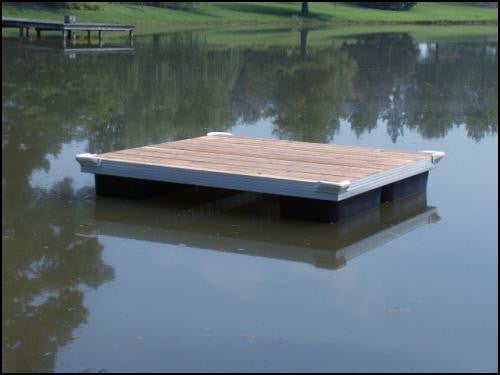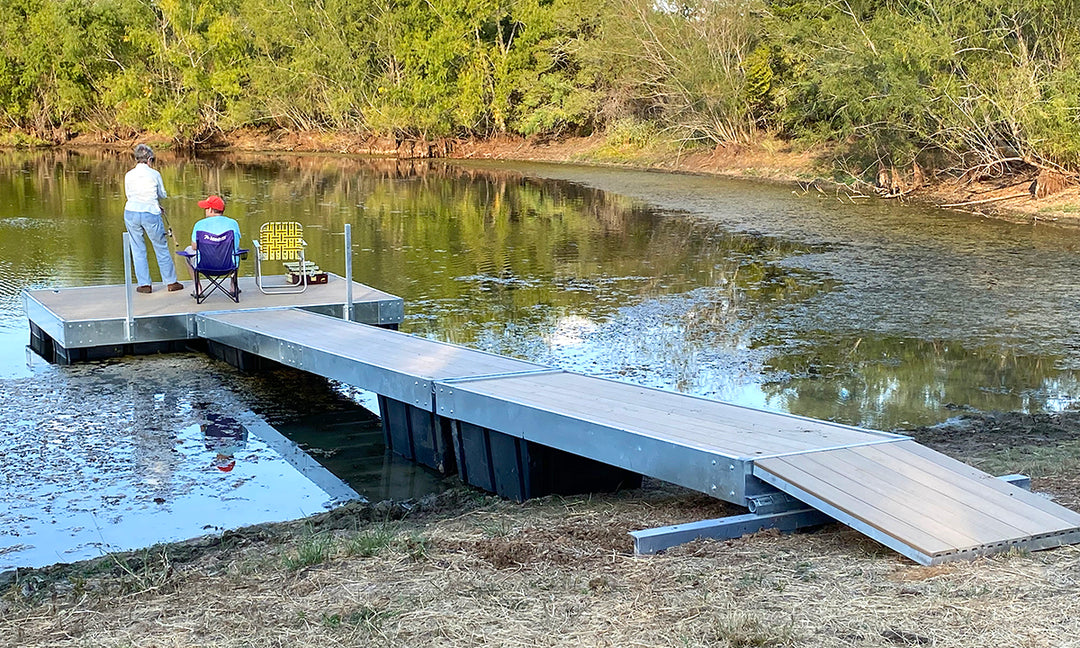The Ultimate Guide to Picking the very best Floating Docks
Picking the suitable floating dock requires a detailed understanding of various aspects that affect both efficiency and durability. Aspects such as dock types, products, and crucial features dramatically affect your decision-making process. Considerations around setup and budget can even more make complex the choice. By taking a look at these aspects systematically, one can make certain an investment that not only fulfills immediate needs yet additionally boosts overall property value. As we check out these crucial elements, it becomes clear that the right selections can bring about a useful and long lasting solution customized to your certain needs.
Understanding Floating Dock Kind
When choosing a floating dock, it is vital to understand the various kinds offered, as each serves unique functions and applications. Floating docks primarily come under three classifications: modular, stationary, and pontoon docks.
Modular docks are made up of specific areas that can be easily assembled or reconfigured, making them suitable for transforming water degrees and varied usages, such as business procedures or leisure tasks. Their versatility permits modification based on details demands.

Pontoon docks are defined by their buoyant structure, often composed of numerous pontoons that offer security and assistance. They are especially well-suited for bigger vessels and are frequently utilized in marinas or for beachfront homes. Understanding these kinds help in selecting one of the most proper floating dock to satisfy specific needs, making sure optimum performance and safety and security.
Secret Products for Sturdiness
Choosing the right products for floating docks considerably impacts their sturdiness and longevity. One of the most common materials consist of timber, plastic, metal, and composite materials, each offering distinct advantages and constraints.
Wood, commonly preferred for its aesthetic charm, requires routine upkeep to hold up against wetness and decay. Pressure-treated lumber can boost resistance to rot, yet it might still be susceptible to bugs and weathering.

Plastic docks, constructed from high-density polyethylene (HDPE), are immune to deterioration, UV radiation, and effect, making them a prominent option for seaside environments. Their light-weight nature additionally promotes very easy installment and moving.
Steel docks, typically built from light weight aluminum or galvanized steel, provide exceptional strength and longevity. They are resistant to rust, specifically when dealt with, yet might need added insulation to avoid heat accumulation in warm climates.
Composite products, combining wood fibers and plastics, provide the benefits of both timber and plastic, resisting moisture and fading while calling for very little upkeep. - floating dock services
Ultimately, the option of materials should straighten with ecological conditions, intended usage, and maintenance preferences to make certain the floating dock continues to be useful and aesthetically pleasing in time.
Important Functions to Take Into Consideration
While the selection of materials is essential, thinking about vital attributes for floating docks is similarly crucial to guarantee optimum performance and customer complete satisfaction. One vital feature to examine is the dock's buoyancy capacity, which identifies just how much weight it can support without immersing. floating docks. This is crucial for fitting watercrafts, individual boat, and even recreational tasks
Furthermore, mobility is a considerable consideration. Depending on your requirements, you may want a dock that is very easy to deliver and disassemble, particularly if you plan to relocate it seasonally. Stability is another crucial feature; a properly designed floating dock needs to reduce activity created by wind and water currents, providing a protected system for users.
Safety functions, such as non-slip surfaces and rounded edges, are additionally crucial to avoid mishaps, especially in damp conditions. In addition, think about the availability of devices, such as bumpers, ladders, and cleats, which can enhance the performance of your dock.
Setup and Upkeep Tips
Establishing and keeping a drifting dock needs mindful preparation and attention to detail to guarantee its longevity and optimal performance. Begin by picking an appropriate place that minimizes direct exposure to strong currents and waves, which can cause damage. Ensure that the water depth is enough for the dock's elevation which it is secured firmly to stop activity.
Throughout installation, adhere to the manufacturer's standards closely, as inappropriate assembly can compromise security. Usage top notch materials resistant to rust, such as aluminum or dealt with wood, to boost toughness. Routinely examine all elements, consisting of drifts, adapters, and securing systems, for signs of damages or wear.
Upkeep is important for prolonging the life of your dock. Clean the surfaces periodically to stop algae accumulation and look for any loose fittings that may require firm. If your this link dock makes use of flotation gadgets, ensure they continue to be totally free and intact from punctures. Additionally, think about applying protective finishes to wooden elements to minimize weathering impacts. By adhering to these installation and upkeep suggestions, you can take pleasure in a reputable and practical floating dock for years ahead.
Budgeting for Your Dock
Budgeting for your dock is an essential step that can significantly affect your overall fulfillment and investment in a discover this info here beachfront property. Developing a clear budget plan aids you browse the different choices offered and ensures you make educated choices that line up with your monetary capacities.
Begin by figuring out the dimension and layout of the dock you require, as these aspects will considerably influence the expense. Floating docks can differ significantly in price, depending upon materials, buoyancy, and attributes like ramps and devices. Research study various producers and suppliers to compare costs and understand the marketplace value.
Along with first costs, think about continuous expenses such as upkeep, insurance policy, and prospective repair work. Allocate funds for these persisting prices to stay clear of shocks down the line. It's also sensible to allocate any kind of required authorizations or inspections, which might be required by regional laws.
Last but not least, keep in mind the prospective roi. A tactical dock can improve your residential property's value and charm, giving a favorable monetary influence in the long term. By budgeting properly, you can guarantee that your dock meets your requirements without endangering your monetary stability.
Verdict
In final thought, selecting the optimal floating dock requires a complete analysis of various variables, including dock types, products, vital features, and installment processes. Mindful consideration of budgetary restrictions will better make sure a sound financial investment.

While the option of products is crucial, thinking about essential features for floating docks is just as important to guarantee ideal efficiency and user complete satisfaction.Setting up and preserving a drifting dock needs mindful preparation and focus to information to guarantee its longevity and optimal performance. Floating docks can vary considerably in cost, depending on products, buoyancy, and functions like ramps and devices.In verdict, picking the ideal floating dock demands a thorough evaluation of different elements, including dock types, materials, important functions, and setup processes.